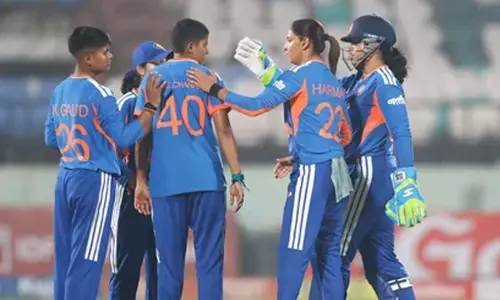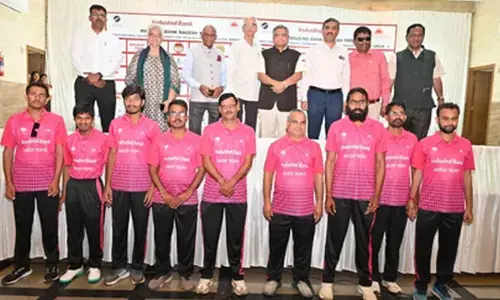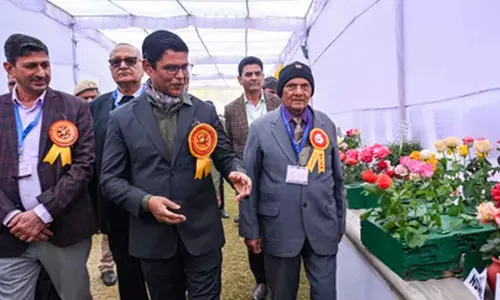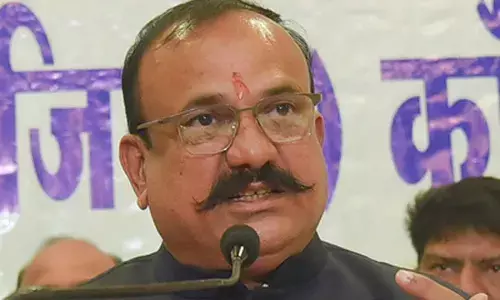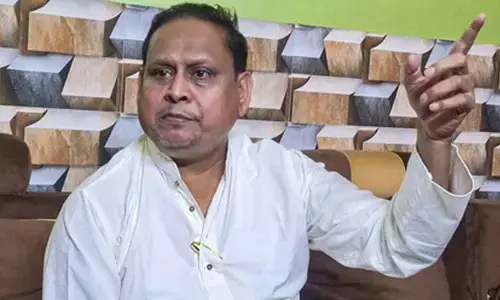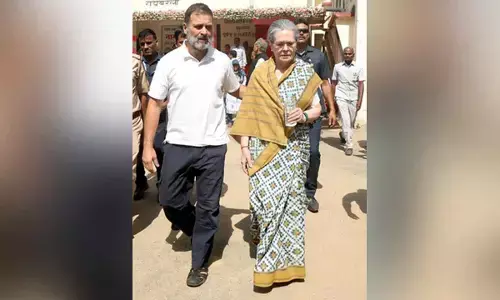Ahead of Rajasthan elections 2018, WhatsApp, DEF host training session to tackle menace of fake news

Messaging platform WhatsApp Monday held a training session for community leaders in partnership with Digital Empowerment Foundation DEF in Jaipur, as it looks to tackle the menace of fake news ahead of elections in Rajasthan
New Delhi: Messaging platform WhatsApp Monday held a training session for community leaders in partnership with Digital Empowerment Foundation (DEF) in Jaipur, as it looks to tackle the menace of fake news ahead of elections in Rajasthan.
The effort is part of WhatsApp and DEF’s joint initiative — announced in August — to undertake workshops in over 10 states to educate subscribers on using the messaging platform responsibly and help curb the “epidemic of misinformation” in the country, WhatsApp said in a statement.
Assembly elections in Rajasthan are scheduled to be held on December 7. The Facebook-owned company has gone into overdrive after it faced severe criticism from the government over circulation of fake news on its platform that incited multiple incidents of mob lynching across the country earlier this year.
The focus areas of these workshops are “key election states and those plagued with instances of provoked-violence as a result of misinformation earlier this year”, the social media giant said in its statement. WhatsApp and DEF have already conducted training sessions in poll-bound states like Madhya Pradesh, Chhattisgarh, Mizoram, Rajasthan and Telangana, it said. Similarly, they will conduct the sessions in some other key states such as West Bengal, Assam, Karnataka, Maharashtra, Tripura and Jharkhand by March 2019, the statement noted.
The Delhi-based DEF is a not-for-profit social enterprise that empowers people at the edge of information, including marginalised and underserved communities. “WhatsApp is proud to have played a part in helping millions of people in Rajasthan to freely connect with their loved ones anywhere in the world. These trainings are part of our strategy to help people stay safe and limit the spread of harmful rumours this election season,” WhatsApp Public Policy Manager Ben Supple said.
With the general elections slated to be held next year in India, the government is taking a tough stance on use of social media platforms like Facebook, Twitter and WhatsApp to stop the spread of misinformation. The government had warned WhatsApp that it would treat the messaging platform as abettor of rumour propagation and legal consequences will follow if adequate checks are not put in place.
WhatsApp, which has been slapped with two notices to check the spread of fake news, has taken a series of measures, including restricting the number of forwards and added ‘forward’ label to help users identify such messages. It is also in the process of establishing a local corporate entity and appointing a head for its India operations.
Detailing out the proceedings of the workshop at Jaipur, WhatsApp said the event included training session that encouraged WhatsApp users to see themselves as ‘agents of change’. Over 120 participants were trained on how to spot false news and differentiate between rumours and opinions.
Subsequent steps to tackle instances of false news and tips to stay safe on WhatsApp were also shared. The curriculum further delved into how users can contact fact-checking organisations like Altnews and Boom Live to accurately verify information when they are in doubt.
The training was provided to local government administrations, law enforcement authorities, college students, NGOs and other community leaders. “While the problem of misinformation is not restricted to rural areas alone, it is the rural population that majorly lacks access to alternative news sources for sake of verification,” Osama Manzar, founder-director of DEF, said.
He added that education is the only solution to this problem, and when users are taught some basic verification techniques, there is a ripple effect that can potentially fight misinformation. Given the nature of private messaging, where 90 per cent of the messages sent are between two people and group sizes are strictly limited, WhatsApp has been focussing on educating and empowering users and proactively tackling abuse.
Recently, WhatsApp had also announced the recipients of its research awards — announced in July — that aimed to find possible ways to address the challenge of misinformation. The company said it had received about 600 proposals. Each of the selected 20 research teams will receive up to USD 50,000 for their projects that will attempt to examine various aspects, including the role of WhatsApp in everyday political conversations in India.










